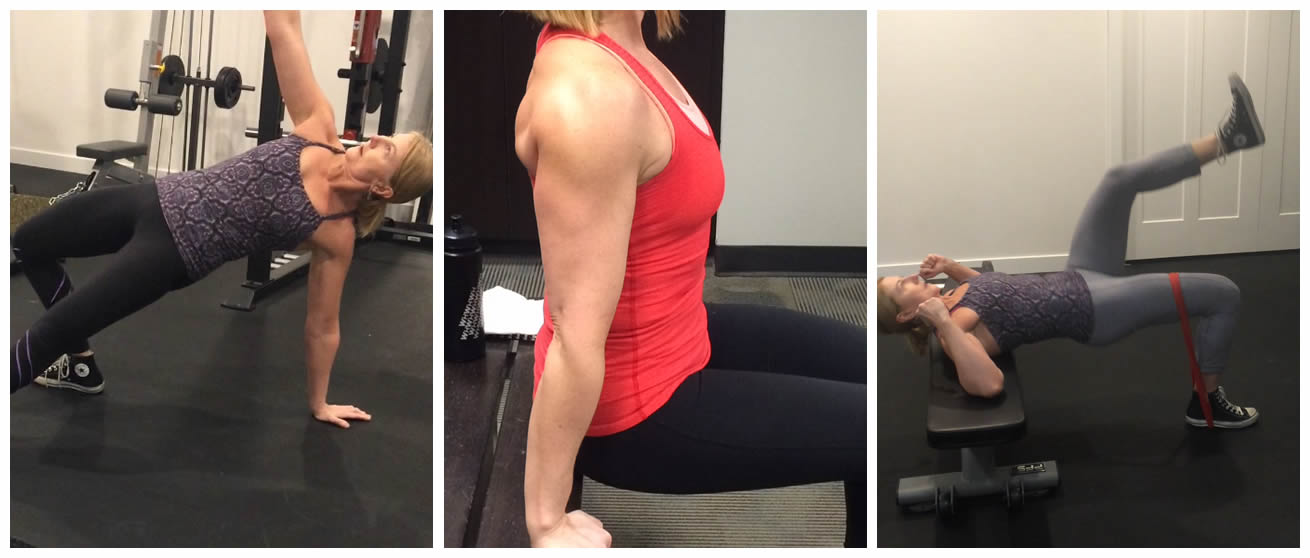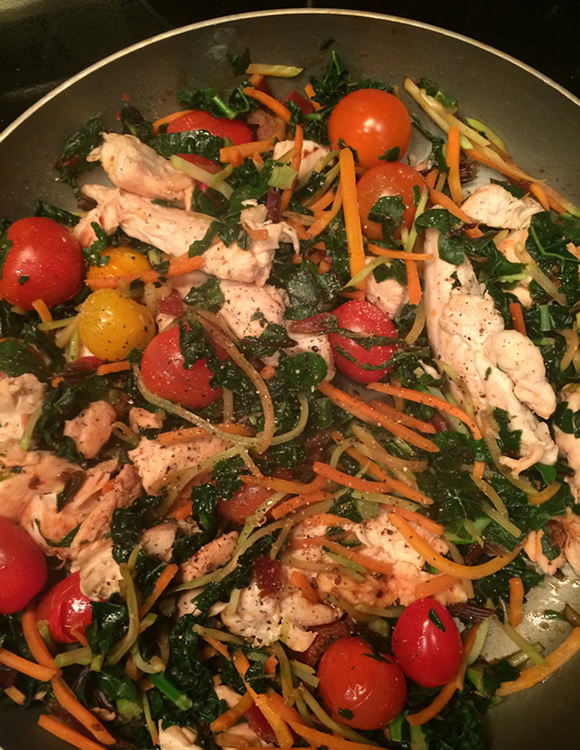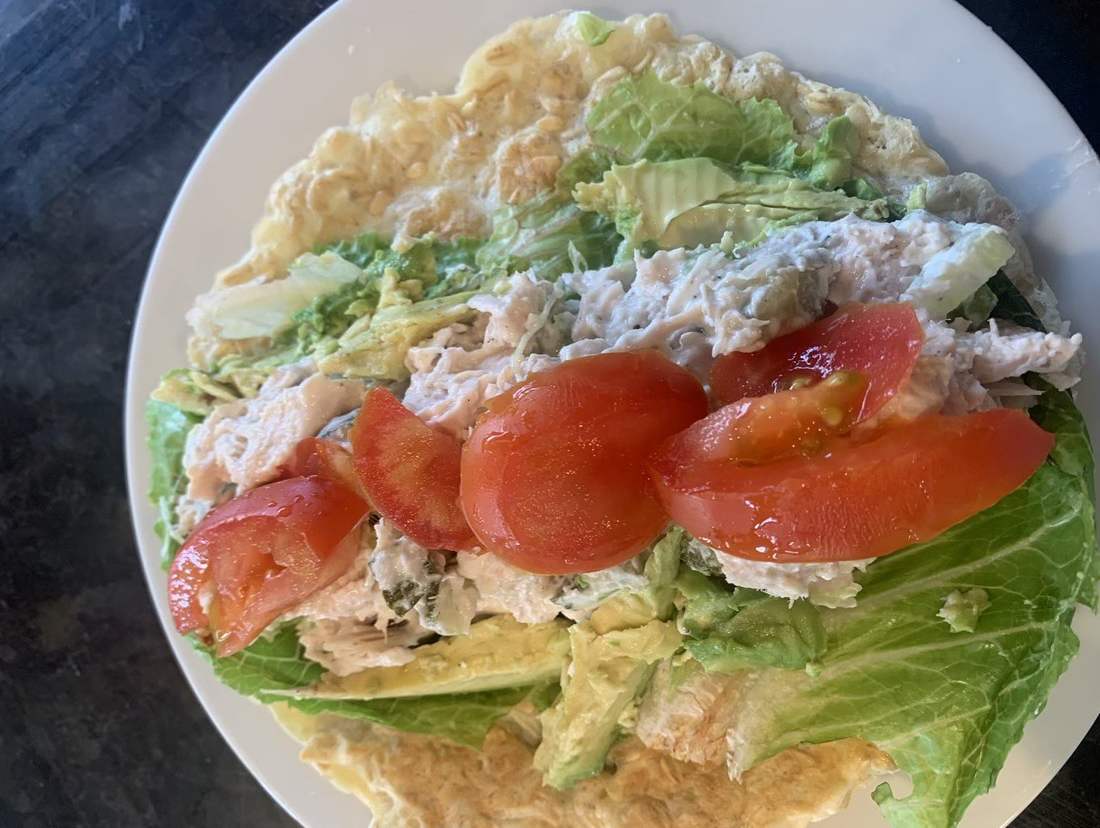Full Service Nutrition
Performance, body composition (being toned vs having too much body fat) and good general health are not only dependent on what we eat, but also the lifestyle we lead.
Overweight and/or sedentary people usually have these in common: they lead stressful lives that don’t have a balance of work and play.
When looking at nutrition; it is vital to look at what type of exercise an individual gets, as well as whether they are taking the necessary actions to recover from exercise.



It is very important to note that after the age of 25, we experience a decline of 2 to 4 % in our resting metabolic rate. That’s pretty important because the resting metabolic rate accounts for 60 % of the calories that we burn in a day. If we don’t utilize intense exercise, by the age of 40 a person could have a resting rate of 1300 calories per day. That is a slow metabolism. The only way to restore a slowed metabolism is to preserve existing muscle, add more muscle, and eat to fuel muscle growth. Muscle is active tissue, fat is not. The strategy to preserve muscle mass is to eat enough food that has a high nutritional profile and do exercise that recruits many muscle groups, as well as exercise that is done near your maximal heart rate. This causes a positive cellular stress and adaptation to occur in the body. This causes a cascade of increased protein turnover, muscle building (providing a proper program is followed), a high energy cost (calories burned both during the activity and at rest), as well as cardiovascular benefits.
So, as you can see, we need good nutritional practices and exercise to create positive adaptations in our body!
Basically, a body that utilizes more oxygen in a day, is a body that is not in a slow, steady state of decay.
The only way to a healthy functioning metabolism is to do intense exercise that adds muscle tissue, to eat to support muscle growth and maintenance, and to get quality hydration and rest.
The biggest challenges to long term success are the strategies that most people employ to lose weight:
- They add in more cardio type exercise, which is great to burn calories but does nothing for changing body composition. Because activities like running burn lots of calories, they feel hungrier and eat more of the wrong foods.
- They skip meals in hopes of losing weight. That only serves to lower the resting metabolic rate.
- They don’t eat enough protein, fruits and vegetables.
- They don’t move enough, or sleep enough.
- They get too many of their calories from prepared, boxed foods and sugary beverages.
- They look at short term fixes and give up because they are too restrictive. They either restrict whole food groups, or eat low quality macronutrients, or not enough good fats. They don’t have the energy for intense exercise.
- If they do employ training with weights, they do so without knowledge of proper biomechanics, and only work from the posture they live in: hip flexors, spinal erectors, upper trap and neck muscles. They either get tight, don’t see results, get injured and give up. A great majority of people never use their power muscles. This is where metabolic potential exists.
Good results start with the basics:
- Decide what you want. You must match your goal to your diet and exercise plan.
- Be honest with what you are starting with. If you have had children, have never properly strength trained, have been sedentary for 10 years, etc., it is not realistic to expect quick results.
- Reach out for support. Results are far quicker and greater, and the chances of giving up in frustration are greatly reduced when you have a program that has been designed for you.


Nutritional Coaching
I am a certified Nutrition Coach with Precision Nutrition, North America’s leader in the field of nutritional coaching for sport, exercise, and body composition (fat loss and/or muscle gain).
The approach is a habit based, behavioral one; that coaches skill acquisition to maintain the habits that result in better health, body composition, and performance.
Programs that give diets or meal plans encourage the “off and on mentality”. It is precisely this black and white view of eating that leads to over restriction; which, in the long term causes a poorer health profile and weight gain. It is psychologically unsustainable.
Long term sustainable changes must work with your lifestyle. The meals must be delicious, nutritious, budget friendly, easy and quick to prepare. However, this long term change is created and sustained when you learn to create meal plans yourself; and you know what foods to eat that don’t interfere with your ideal health and body composition vision when you are in a hurry. That is freedom.
One of the greatest limiting factors to success are lack of skills. This is primarily addressed in my program by:
- planned grocery trips and learning which items to choose
- knowledge about storing and preparing food
- eating for satisfaction. A hungry person is not a satisfied person.
- tuning in to hunger and appetite cues
- how to avoid problem foods. How to make better choices when outside the home.
- real life lessons in cooking for both health and enjoyment. I bring an award winning culinary history to my business; having spent 12 years in various Chef positions. I pass these skills on to you.
All of these build success through my approach of habit- based coaching.
You and I build success in two week blocks. We spend time together working through lessons and helping you to build self-accountability, until you have the foundation of behaviors set in place to ensure your continued success.
Within a 12-week block, we address:
- food behaviors (timing, frequency, food amounts and types)
- attitudes towards food and meal preparation
- stress management and how it relates to food choices
- rest, recovery, sleep, exercise, and how they relate to food consumption and overall health
- outlook. Helping you to cultivate a mindset of success.
12 week coaching, including initial consult and 8 skill building and follow up sessions.
A minimum commitment of 12 weeks. The 12 weeks includes initial assessment, at which time direction for exploration is given. Then daily or weekly contact, depending on the needs of the client. An in-person or Zoom checkin for assessment and progression every two weeks.
Healthy Eating for Long Term Success
Whole Foods, Fresh Ingredients
Good health, body composition, and performance comes from eating a diet of mostly whole foods. The best tasting food is created by using the proper cooking method and by using simple ingredients.
Healthy, Balanced, Colorful Meals
The strategy of eating less and moving more either results in a slow resting metabolic rate, or total abandonment of diet. My clients don’t follow menu plans, eat from tiny containers, or purchase expensive supplements. They learn how to eat daily multiple meals like these, that they prepare themselves. Learning kitchen and preparation skills are the key to long term success. As part of my coaching offerings, I have available at an additional fee, personal coaching sessions that teach my clients how to prepare meals like these, and others that are all nutritious, delicious, budget friendly, and easy to make.
Nutritional Coaching FAQ
Here are some frequently asked questions in regards to my nutrition coaching:
Do you give meal plans?
No. Experience shows that following meal plans does not allow the client to instill the basic, but highly effective lifestyle habits that are necessary to create positive change long term. When meal plans are given and followed, it doesn’t encourage clients to create practices that work for them. They are usually too rigid to fit into the uniqueness of a person’s schedule. They also have a “one size fits all” mentality that does not take into consideration an individual’s meal planning and preparation skill level. They also match a short-term fix to a long- term situation.
How does this work?
We work together, through the series of habits, which are both solid and flexible, and that pave the way to a lifestyle of healthy eating and movement. These habits are tailored to suit individual preferences, priorities, belief systems, and schedules. By practicing the habits, life naturally evolves to better suit the goal(s) wanting to be achieved.
How do I know what to eat then?
There are 5 critical habits that are employed in a healthy lifestyle. These are rooted in the way a person lives. This requires gaining new skills, as well as engaging in practices of behavioral change psychology. Overtime, these practices will naturally reveal the outcome of practice, in better health, fat loss, and improved performance. An attained goal(s) is merely evidence of an accumulation of practices done overtime, that are specific to the achievement of said goal(s). In a client-centered relationship, such as this one, the client is guided to choose the behaviors and foods that best suit their lifestyle, and that fall in line with what they value and prioritize.
Can you explain the habits a bit more?
Certainly. I believe that there are no shortcuts or short-term fixes to long standing lifestyle practices. It took a while to develop how you currently do things, therefore, its going to take some time as well as learning to do things differently, to change. That’s rational. There is a system to achieving this, which involves looking at what you want to achieve, and breaking it down into specific skills. These skills are then practiced daily through habits. The habits build onto each other, in a seem less way so as not to cause you to want to feel overwhelmed and to quit.
Like anything else in life, changing lifestyle means doing things differently. That requires both learning new concepts as well as putting them into practice. The two biggest factors are cultivating the habits of eating slowly and eating only until satisfied. These two habits take time to instill, so they are reintroduced throughout the program. Other habits will set you up to plan and prepare meals with the right amount of protein, carbohydrates, and fats for you. You learn and incorporate a new way of eating that fits into your life. There are many other important habits to acquire- from good sleep practices to exercise, which will leave you feeling in complete control and accomplished.
Ready to Get Started?
If you are ready to get started on a new nutrition plan that will help you achieve your goals, just click the botton to get started! We will ask you some important questions to help get you started.
